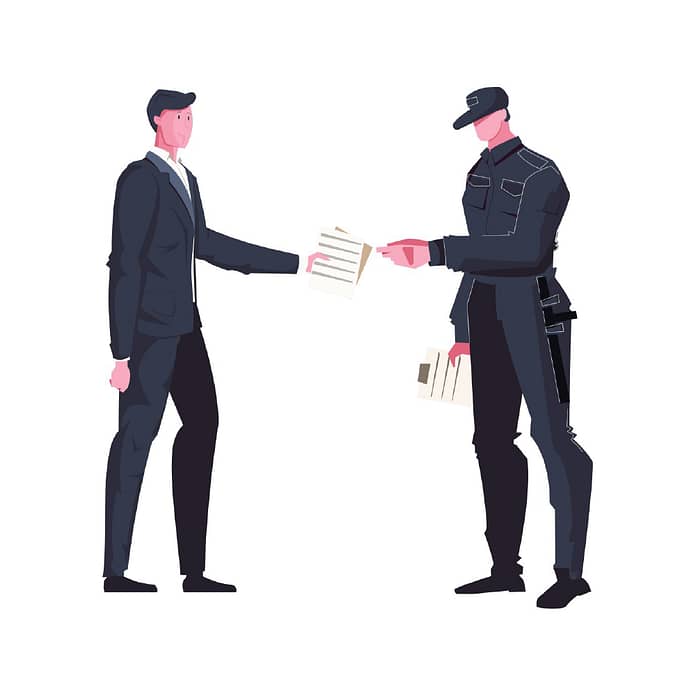Pro Bono Lawyers Fighting Police Misconduct: Police misconduct, an unfortunate reality in many societies, can lead to grave violations of civil rights and an erosion of trust between law enforcement and the communities they serve. When victims of police misconduct seek justice, they often face significant barriers, including financial constraints, fear of retaliation, and a complex legal system.
However, there is a ray of hope in the form of pro bono lawyers who selflessly offer their legal expertise to fight against injustice and uphold the rights of those affected by police misconduct. In this article, we will explore the crucial role of pro bono lawyers in addressing police misconduct, their motivations, challenges, and the impact of their work on society.

Understanding Police Misconduct
Police misconduct refers to any unethical or unlawful actions perpetrated by law enforcement officers while carrying out their duties. It encompasses a wide range of transgressions, including excessive use of force, racial profiling, false arrest, sexual harassment, and abuse of power. Instances of police misconduct can lead to severe physical and emotional trauma for victims, damaging their trust in the justice system and law enforcement agencies.
Challenges Faced by Victims of Police Misconduct
For victims of police misconduct, seeking justice can be an uphill battle. They may be reluctant to report the misconduct due to fear of retaliation or lack of trust in the internal affairs departments investigating the incidents. Additionally, navigating the legal process can be overwhelming, especially when facing well-funded law enforcement agencies and their legal teams. Financial constraints further exacerbate the situation, as many victims cannot afford to hire private attorneys to represent them in court.
Pro Bono Lawyers: The Guardians of Justice
Pro bono lawyers, also known as volunteer lawyers, dedicate their time and expertise to provide legal representation to those who cannot afford it. They play a vital role in bridging the justice gap and ensuring that everyone has access to legal recourse, regardless of their financial situation. In cases of police misconduct, pro bono lawyers become the advocates for justice, fighting to hold law enforcement officers accountable for their actions and seeking compensation for the victims.
Motivations of Pro Bono Lawyers
The motivations behind pro bono work can vary among lawyers, but there are some common threads that drive them to take on cases of police misconduct:
Commitment to Social Justice: Many pro bono lawyers have a deep-rooted commitment to promoting social justice and equality. They view their legal expertise as a powerful tool to address systemic issues, including police misconduct, and strive to create positive change in their communities.
Empathy and Compassion: Pro bono lawyers often feel a strong sense of empathy and compassion for victims of police misconduct. They understand the impact of such violations on individuals and families and are determined to provide them with legal support and a voice to be heard.
Upholding the Constitution: For some pro bono lawyers, defending victims of police misconduct aligns with their belief in upholding the constitutional rights and principles that form the bedrock of a just society.
Challenging the Status Quo: By taking on pro bono cases of police misconduct, lawyers can challenge the status quo and push for accountability and transparency in law enforcement practices.
Pro Bono Organizations and Initiatives
Numerous organizations and initiatives have emerged to support pro bono lawyers in their fight against police misconduct. These entities act as intermediaries, connecting volunteer attorneys with victims in need of legal representation. Some of the prominent pro bono organizations include:
The Innocence Project: Focused on exonerating wrongfully convicted individuals, The Innocence Project also advocates for justice in cases of police misconduct and wrongful arrests.
American Civil Liberties Union (ACLU): The ACLU is a longstanding defender of civil liberties and offers legal assistance in cases involving police misconduct and constitutional violations.
National Police Accountability Project (NPAP): Dedicated to ending police misconduct, NPAP connects victims with pro bono attorneys specializing in civil rights litigation.
Public Counsel: As the largest pro bono law firm in the United States, Public Counsel takes on a wide range of cases, including police misconduct, to protect the rights of vulnerable individuals.
Impact on Society
The impact of pro bono lawyers’ work extends beyond individual cases; it reverberates throughout society. Some of the key impacts include:
Holding Law Enforcement Accountable: By pursuing cases of police misconduct, pro bono lawyers help hold law enforcement officers accountable for their actions, encouraging responsible and ethical policing.
Strengthening Trust in the Legal System: When victims of police misconduct receive fair representation, it strengthens public trust in the legal system and reinforces the belief that justice is attainable for all.
Advocating for Policy Changes: Pro bono lawyers often work with advocacy groups to push for policy changes that address systemic issues contributing to police misconduct, fostering lasting reform.
Setting Legal Precedents: Successful pro bono cases can set legal precedents that protect citizens’ rights and shape future interpretations of the law.
Challenges Faced by Pro Bono Lawyers
While pro bono lawyers play a crucial role in addressing police misconduct, they also encounter challenges unique to their work:
Limited Resources: Pro bono lawyers often operate with limited resources, making it challenging to dedicate significant time and effort to each case.
Emotional Toll: Dealing with cases of police misconduct can be emotionally draining, as lawyers work closely with victims who have endured traumatic experiences.
Opposition and Retaliation: Lawyers taking on cases against law enforcement may face opposition and even retaliation, making their advocacy a courageous endeavor.
Heavy Caseloads: Pro bono lawyers may struggle to balance their volunteer work with their regular caseloads, potentially impacting their ability to take on more cases.
Conclusion
In the fight against police misconduct, pro bono lawyers emerge as beacons of hope for victims seeking justice. Their dedication to upholding civil rights, combating systemic injustice, and providing legal representation to those in need helps create a more just and accountable society. As the demand for their services grows, it is crucial for society to support and recognize the invaluable contributions of these selfless advocates of justice. Only by joining hands and working together can we achieve meaningful reform in our law enforcement practices and safeguard the rights and dignity of every individual, irrespective of their background or circumstances.


